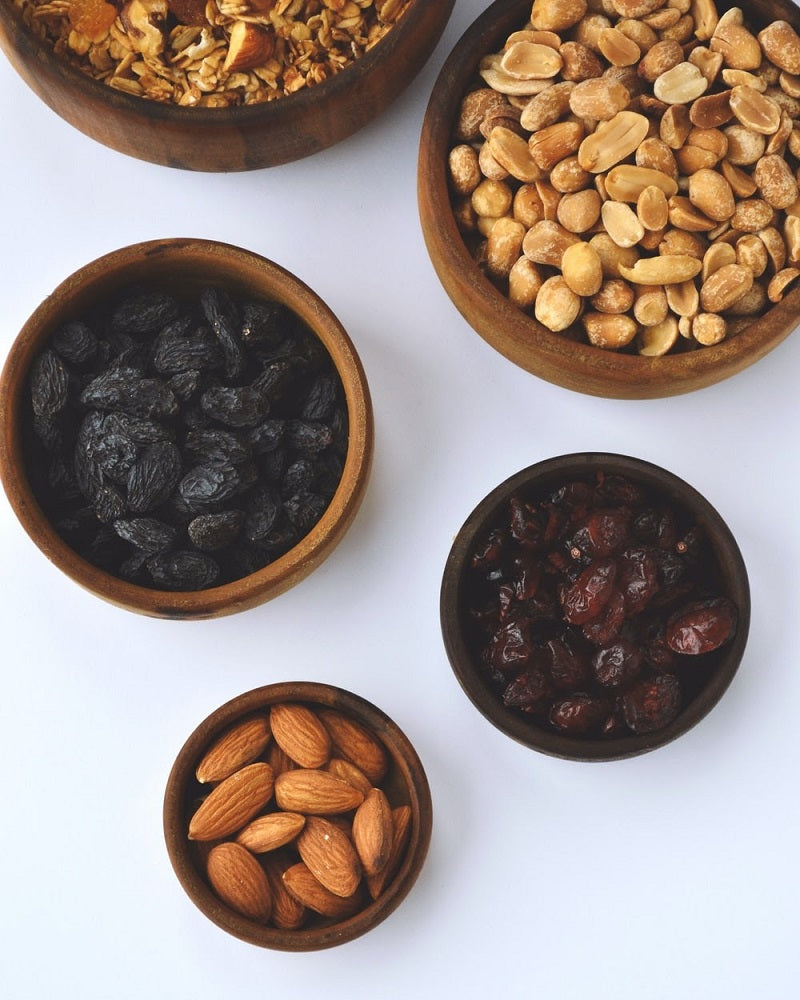Your Cart is Empty
Menopause and Weight Gain in Stomach: What Causes Women to Gain Belly Fat?

Some say that pregnancy is kinder to your body than menopause. After all, so many women manage to get back in shape after they give birth, while others look like nothing happened. There is a large probability of "getting your body back" after the significant hormone and physical storm that is pregnancy. Menopause isn’t a cakewalk either - but it’s possible to keep that stubborn belly fat off.
Menopause is a permanent change in our hormone cycle - it's a change that happens and stays, much like puberty. In fact, it's also known as the "second puberty". Belly fat is a common problem for menopausal women, and while it takes commitment, you can deal with it if you have determination and consistency.
Causes of belly fat
Throughout centuries, women have noticed that belly fat is especially troublesome after menopause arrives. Most postmenopausal women gain abdominal fat around menopause for a few reasons:
- Declining estrogen levels
- Age-related muscle loss
- Lifestyle factors
- Poor diet - too many calories
Estrogen is the main factor of this unfortunate fat distribution - rather than accumulating weight anywhere else, abdominal fat is extremely quick to accumulate during menopause. The exact mechanism behind this is not known yet - but both men and women tend to accumulate body fat around the belly after a certain age.

Where is your belly fat - really?
When you look in the mirror, doesn't it all just seem so skin deep? The belly fat we gained seems to be like something we literally "put on". But it goes so much deeper than that.
There is something called "visceral fat" - this is the dangerous kind of fat that we should be aware of, and it should be the main cause for action when we decide that we want to put those extra menopausal pounds away.
Visceral fat is the type of fat that surrounds and grows around your internal organs. This type of fat can have a devastating toll on your health and is increasingly statistically responsible for the poor state of women's health in general. The illnesses associated with visceral fat include:
- High blood pressure
- Type 2 diabetes
- High cholesterol
- Heart disease
Studies concluded that even if your BMI is normal but you have a large accumulation of fat around your abdomen, then your risk of dying from cardiovascular disease is increased.
For women, including those going through the menopausal transition, a normal waist measurement should be no more than 35 inches. Anything more than that indicates that you have a higher than recommended belly fat. Again, even if your BMI is stellar, take some time to measure your waistline to make sure body fat isn't accumulating there.
Getting rid of unhealthy belly fat
While your body weight might be considered normal, you might have to pay extra attention to your abdominal area. Of course, the easiest way of dealing with weight gain is to prevent weight gain before it starts. Strength training, exercise, and a carefully tended diet are key in controlling your BMI. Here are some things you should especially concentrate on:
Do this to target belly fat
Eat a healthy diet- but what? Are there particular foods that cause belly fat to accumulate? Yes - there should be a "never in a million years" list when you draft your list of forbidden foods. There are a lot of foods that help you keep lean, especially around the middle.
Eat this for a lean tummy:
- Whole grains
- Healthy fats from fish, avocado, nuts, and certain cold-pressed oils
- Low-fat dairy
- Legumes
Keep your portions down - it's better to eat smaller helpings more often than large meals less often. This might take some planning, but it works and is definitely worth it to make your health a priority.
Exercise - you should keep your physical activity up, even if you don't feel like it. Gyms might still be closed or you might be out of practice keeping a gym routine - but try to make an effort to go outside for a brisk walk. It's recommended to take a fast-paced walk for at least 150 minutes per week or do vigorous aerobic activity for at least 75 minutes a week. This might involve running, jogging, or fast-paced rowing.
Weight training and weight lifting are also recommended for menopausal women. It not only helps with bone health as you get older, but this type of exercise builds muscle mass which burns more calories in the long run - keeping the excess weight off, and using more energy on a daily basis. Loss of muscle is one of the culprits behind many women simply burning fewer calories after they get older.
Rememberthat after you hit menopause, along with the hormonal changes, hot flashes and the cessation of your menstrual cycle comes the dreaded calorie deficit. You simply burn fewer calories - and need fewer calories as a result.
On average, women burn about 500 fewer calories a day after menopause.

Don't do this when trying to get rid of belly fat:
Most women start with their diet- and it's a perfect starting point. You have to analyze what you eat carefully and try to get rid of or minimize belly-fat culprits like:
- Saturated fat
- Trans fats
- Alcohol
- Sugar
- Fruit juices (more sugar)
- White bread and pastries
The trouble with sugar is that a lot of women don't even realize they're consuming it. You might be consuming a LOT more than you know! Take a look at these hidden sources of sugar that you should keep to a bare minimum, or even better - cross them out of your diet! The tricky part is that a lot of them might come disguised as something healthy, like yoghurt or healthy breakfast cereals. Make sure to check the packaging before you dig in.
- Ready-made sauces like pasta sauce (6-12 grams of sugar/1 cup)
- Health bars like granola bars (8-12 grams/serving)
- Flavored yogurt (17-33 grams/8 oz)
- Salad dressing (7 grams/2 tbsp)
- Dried fruit (25 grams/1.5 oz)
- Ketchup (4 grams/tbsp)
The daily recommended intake of sugar is 24 grams of sugar. That's about 6 teaspoons! It equals 100 calories from sugar.

Poor gut bacteria - studies have shown that an imbalance in gut bacteria may increase your risk of type 2 diabetes, heart disease, cancer, and many other afflictions. Scientists are now able to model our gut bacteria behavior and inspect what's going on in our intestine. A good way to balance the healthy bacteria in your gut is through changes in diet and an increase in consuming foods that are full of healthy probiotics, and supplement with recommended pro and prebiotics.
It turns out that you don't only need to have a great diet to feed yourself - but you need to mind what you're eating so you can supply your gut bacteria with energy and food as well. To do this, you should eat a lot of high-fiber foods, consume prebiotic-rich foods like whole grains, spinach, beans, oats, and onions. Probiotics also help, and they're delicious too - miso, kimchi, kefir, Lacto-fermented pickles, kombucha, and sauerkraut are all probiotics.
Limiting animal fat, antibiotics, and of course - getting enough physical activity will help you keep your gut bacteria happy.
Muscle mass vs body fat
A lot of women who have good diet and exercise habits tend to concentrate on their belly fat. They do thousands of crunches, sit-ups, and strength training that concentrates on the abdomen. While not harmful, consider if you might be better off losing weight in general, and not try to concentrate on one area. This usually works better. There is no diet that will concentrate only on your stomach, and even though tummy exercises will tone your abs and stomach muscles, the best way to control your weight is through overall muscle gain. General muscle mass will help you to keep weight off by burning more calories.
Final thoughts
Menopause weight gain can really hit you hard. It's difficult to change your habits - especially if you hit a great groove in your 30s and 40s. It's tough that something that worked so well before just isn't enough now, whether because of lower-calorie requirements or needing more exercise than before. While it will take some adjustment, menopause reminds us to renew the promise of a healthy and meaningful life for ourselves. If being in shape came easy for you before, maybe now is a time to mindfully pay attention to your body and treat yourself to a lot of love and self-care.
